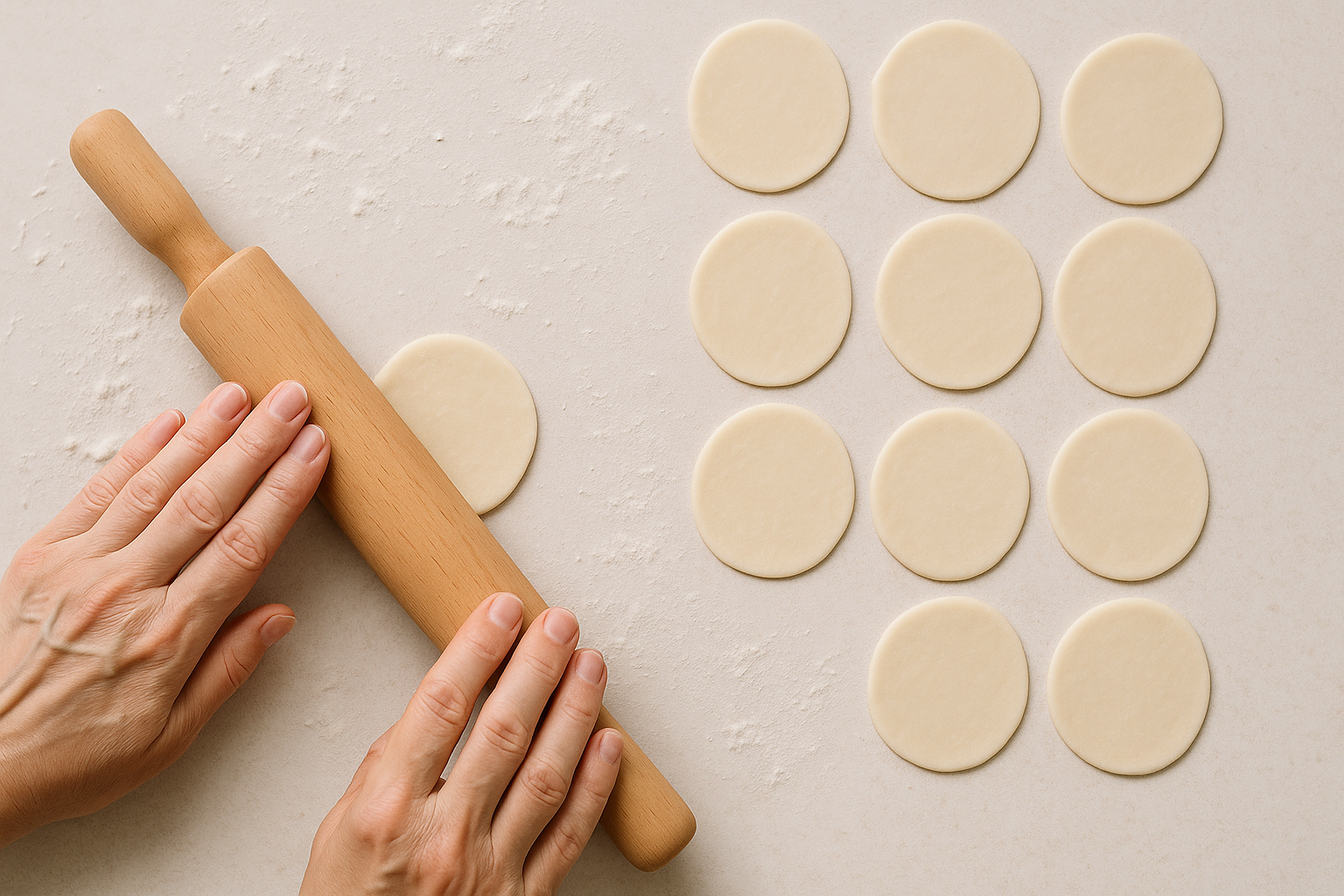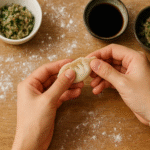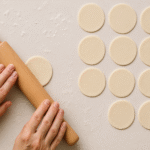If you’ve ever made dumplings at home, you know the filling gets most of the attention — but the dough is where the real magic happens. The wrapper is what gives a dumpling its structure, its bite, and that satisfying chew that holds everything together.
While store-bought wrappers are easy and consistent, making dumpling dough from scratch adds a layer of authenticity and satisfaction that’s hard to beat. With just two ingredients — flour and water — you can create soft, stretchy, and versatile wrappers for any style of dumpling: boiled, steamed, or pan-fried.
This guide walks you through the process step by step, with practical tips and techniques to ensure success even if it’s your first time.
Ingredients
For about 30 dumpling wrappers, you’ll need:
- 2 cups (250g) all-purpose flour
- ¾ cup (180ml) warm water
- A pinch of salt (optional, for flavor)
- Extra flour for dusting
Step-by-Step Instructions
1. Make the Dough
Add flour to a large bowl. Slowly pour in the warm water while stirring with chopsticks or a wooden spoon until the dough starts to come together.
Knead the dough by hand on a lightly floured surface for 8–10 minutes until smooth and elastic. The dough should feel soft but not sticky.
2. Rest the Dough
Place the dough in a bowl, cover with a damp towel, and let it rest for 30–45 minutes.
Resting allows the gluten to relax, making it easier to roll thin wrappers later.
3. Shape the Wrappers
Once rested, divide the dough into two portions. Roll each into a long log (about 1 inch in diameter). Cut into small pieces — roughly the size of a large cherry.
Dust each piece with flour and flatten slightly with your palm. Use a rolling pin to roll each piece into a thin circle, about 8–9 cm (3–3.5 inches) in diameter.
Tip: Rotate the dough after every roll to keep a round shape. The edges should be slightly thinner than the center for easier sealing.
4. Store or Use Immediately
If not using right away, sprinkle a little flour between each wrapper and cover with a towel to prevent drying.
Homemade wrappers can also be frozen — layer them between parchment paper, wrap tightly, and store for up to 2 months.
Dough Troubleshooting
| Issue | Cause | Fix |
|---|---|---|
| Dough too dry or crumbly | Not enough water | Add 1 tbsp warm water at a time and knead |
| Dough too sticky | Too much water or humidity | Add a little flour and knead again |
| Dough tearing easily | Not rested long enough | Rest for another 15–20 minutes |
| Wrappers shrink when rolled | Overworked gluten | Rest the dough before rolling again |
Tips for Success
- Use warm water — it helps the dough come together faster and improves elasticity.
- Keep the dough covered at all times to prevent it from drying out.
- Roll out a few wrappers at a time, then fill immediately for best results.
- If using for steamed dumplings, make slightly thinner wrappers; for boiled or pan-fried, go a little thicker.
FAQs
Yes, but the dough will be less elastic. You may need to add a bit more water and knead longer.
Hot water dough creates softer wrappers (best for pan-fried dumplings), while cold water dough gives chewier ones (better for boiled dumplings).
Yes. Refrigerate for up to 24 hours. Let it come to room temperature before rolling.
Let it rest longer. Dough that hasn’t relaxed enough will tear when stretched.
Yes, though the thickness may vary slightly. Just roll thinner for wontons.
Conclusion
Making dumpling dough from scratch might seem intimidating, but once you’ve tried it, you’ll realize it’s one of the simplest and most rewarding steps in cooking. The soft, chewy texture of fresh wrappers adds a homemade touch that elevates any dumpling recipe.
Next time you’re preparing dumplings, skip the pre-made pack — roll up your sleeves, make your dough, and enjoy the taste of true craftsmanship in every bite.












